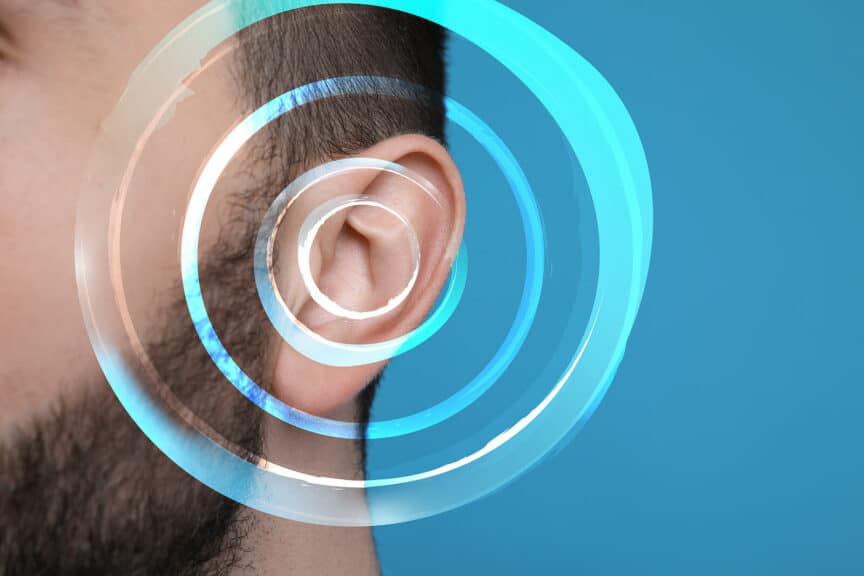- How to Care for Infants With Hearing Loss - April 15, 2024
- Hearing Aid Tips for Runners - April 5, 2024
- Overcoming Misconceptions Around Hearing Aids - March 27, 2024
Have you ever heard a ringing in your ears? Almost everyone at one point or another. However, when there is no escape from it, suddenly it can feel like torture. This phenomenon which seems to be coming from inside your head is called tinnitus. 50 million people report tinnitus in the US alone. Meanwhile 20 million report symptoms so severe it interrupts their rest and daily activity. Another 2 million report symptoms described as debilitating.
What is Habituation?
There is no cure for tinnitus once and for all, but there are methods which will help you function better every day and help you tune out distracting tinnitus. One such method is referred to as habituation. While several methods of treatment focus on covering up the sound with another one, habituation focuses on your response to the sound when it arrives in the front and center of your consciousness.
Think about some of the sounds around you right now, from traffic noise out your window, the ticking of a clock, or the hum of the heater. You can focus on these sounds and you may find they sound quite loud. However, as you focus on other things these sounds may fade away again from your awareness. Habituation with tinnitus asks you to focus on how you fixate on tinnitus when it arrives. With practice you can decentralize it from your brain, so it stops interrupting sleep at night and your concentration during the day. Soon you will be able to truly enjoy each day to the fullest once again.
Stress and Tinnitus—a Vicious Cycle
When tinnitus shows up for many of us, it quickly leaves without notice. However, for those who suffer from chronic tinnitus, it can be hard to filter out. Not only is it distracting but its arrival causes stress. “Oh no! It is back again” you may think. “ Now I’ll never be able to focus or get to sleep!”
The problem is that this stress can make tinnitus so much worse! It also triggers the release of cortisol in our brain—a stress hormone which puts our body into fight or flight mode. We use fight in flight mode to either combat or flee putting us in a state of adrenaline and sleeplessness. When tinnitus is chronic, it is common for people to be trapped in the fight or flight mode, leading to anxiety around the clock, hypertension and an increased risk of stroke and heart attack!
Habituation: A process of slowly removing the obstacles
The good news is that this stress response can be broken with habituation. All you must do is change the way you react to tinnitus emotionally, psychologically, and physiologically. It may sound easier to read than achieve but we assure you with practice and dedication the cycle of anxiety and stress can be broken in association with tinnitus. Success isn’t always a straight line but two steps forward, one step back. It may not happen all at once, but with dedication it can happen
Methods of Habituation
Several methods to reach habituation exist and we recommend trying one after another till you find the best one for you. Three of the most popular approaches include sound therapy, cognitive behavioral therapy (CBT), and mindfulness practices such as meditation exercise and yoga. Many people incorporate many of these approaches as they all have multiple benefits aside from a reduction of tinnitus symptoms.
Sound Therapy
In this method the frequency of your tinnitus is detected via a survey of sound samples to find the one that most matches yours. This is commonly used with hearing aids which can play the sound during the day to cancel out the tinnitus in your head.
Cognitive Behavioral Therapy (CBT)
This type of conversational therapy urges you to examine your response to tinnitus and other stressful factors in your life to practice a calmer response.
Mindfulness Practices
This can include meditation, yoga, breathing exercises, and body scanning to reduce stress and focus on simply being in the moment, allowing your tinnitus to fade into the background.
Tinnitus and Hearing Loss
While not everyone with hearing loss has tinnitus, nearly 90 percent of people with tinnitus have hearing loss. If tinnitus is affecting you, then it is a good idea to test for hearing loss. Contact us today to set up your next hearing exam!

